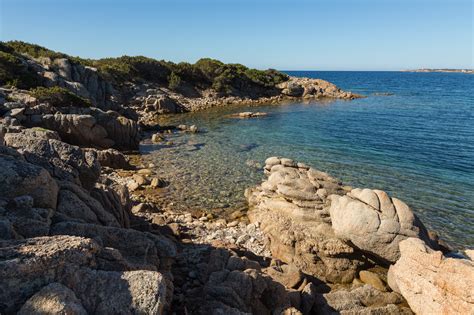Corsica, the rugged and picturesque island in the Mediterranean, is a destination that often gets overshadowed by its more popular neighbors. Yet, this hidden gem boasts a rich and diverse culture that is waiting to be discovered. From its unique traditions and mouthwatering cuisine to its lively festivals and soul-stirring music and dance, Corsica offers a one-of-a-kind experience for travelers seeking an authentic cultural immersion. In this blog post, we will delve into the depths of Corsican culture, exploring the indigenous traditions, the fusion of Mediterranean flavors in its cuisine, the vibrant celebrations of its festivals, the soulful expressions of its music and dance, and the preservation of centuries-old craftsmanship in its art and handicrafts. Join us on a journey to uncover the hidden treasures of Corsica’s diverse and captivating culture.
The Unique Traditions of Corsica’s Indigenous People
Corsica, a beautiful island located in the Mediterranean Sea, is known for its rich and diverse cultural heritage. One of the most fascinating aspects of Corsican culture is the unique traditions of its indigenous people, who have inhabited the island for thousands of years.
The indigenous people of Corsica, known as the Corsicans, have a rich and colorful history that is reflected in their traditional customs and practices. From their unique language and dialect to their ancient folk tales and legends, the Corsicans have preserved their heritage through the generations.
One of the most cherished traditions of the Corsican people is their music and dance. The island is home to a rich musical tradition, with traditional instruments such as the mandolin and bagpipes playing a central role in their cultural celebrations.
In addition to their music and dance, the indigenous people of Corsica are also known for their exquisite handicrafts, including intricate embroidery, pottery, and woodcarving. These skilled artisans have mastered the art of preserving centuries-old techniques, creating beautiful and unique pieces that showcase the island’s rich cultural heritage.
Exploring Corsican Cuisine: A Fusion of Mediterranean Flavors
One of the most enticing aspects of visiting Corsica is the opportunity to explore the unique and flavorful cuisine that the island has to offer. Corsican cuisine is a fusion of Mediterranean flavors, with influences from French, Italian, and North African culinary traditions. The island’s geographic location has played a significant role in shaping its gastronomy, as it is blessed with an abundance of fresh seafood, aromatic herbs, and fertile land for agriculture.
When it comes to Corsican cuisine, traditional dishes such as wild boar stew, charcuterie, and brocciu cheese are iconic and must-try items. The island is famous for its use of chestnut flour in various sweet and savory dishes, a practice that dates back to ancient times. Chestnut-based products, including bread, pasta, and pastries, are prevalent in Corsican cuisine and add a unique and nutty flavor to the dishes.
Herbs such as rosemary, thyme, and oregano are widely used in Corsican cooking, infusing the dishes with a delightful fragrance. One cannot talk about Corsican cuisine without mentioning the island’s exceptional olive oil, which is renowned for its high quality and is a staple ingredient in many recipes.
Exploring the culinary traditions of Corsica offers visitors a chance to savor the essence of the Mediterranean, with a tantalizing mix of flavors and ingredients that reflect the island’s rich history and diverse cultural influences.
Traditional Festivals in Corsica: A Showcase of Cultural Celebration
Corsica, an island known for its rich cultural heritage and vibrant traditions, is home to a myriad of unique festivals that showcase the island’s deep-rooted customs. The traditional festivals in Corsica are a beautiful celebration of the island’s culture, bringing together locals and visitors alike to partake in age-old festivities.
One of the most renowned traditional festivals in Corsica is the Carnevale di Sartène, a lively event held in the beautiful town of Sartène. This carnival features colorful parades, flamboyant costumes, and lively music, offering a dazzling display of Corsican culture and tradition. The streets come alive with dancing and revelry, creating a joyful atmosphere that captures the spirit of the Corsican people.
Another highlight of Corsican traditional festivals is the Fiera di u Vinu, a wine festival that celebrates the island’s esteemed winemaking heritage. This event brings together local vineyards and winemakers, offering visitors the chance to sample a wide array of exquisite Corsican wines. In addition to wine tastings, the festival boasts traditional music and dance performances, adding to the festive ambiance.
One cannot talk about traditional festivals in Corsica without mentioning the Fiera di a Castagna, a chestnut festival that pays homage to the island’s beloved chestnut trees. This event showcases the versatility of chestnuts through culinary demonstrations, artisanal crafts, and lively entertainment. Visitors can indulge in a variety of chestnut-based delicacies while immersing themselves in the island’s rustic charm.
Corsican Music and Dance: Expressing the Soul of the Island
Corsican music and dance play a crucial role in expressing the soul of the island. The unique traditions of the indigenous people are reflected in the rhythmic beats and heartfelt melodies that have been passed down through generations.
Every performance is a showcase of cultural celebration, as Corsicans come together to share their love for music and dance. The fusion of Mediterranean flavors can be heard in the traditional tunes, creating a sound that is both diverse and captivating.
As the lively music fills the air, locals and visitors alike are drawn to the infectious energy of the dances. From the spirited footwork to the graceful movements of the dancers, every step expresses the soul of the island, connecting people to their heritage in an unforgettable way.
Corsican music and dance are more than just entertainment – they are a symbol of the island’s rich history and a powerful expression of its cultural identity. Through each note and every rhythm, the soul of Corsica comes alive, leaving a lasting impression on all who experience it.
Art and Handicrafts in Corsica: Preserving Centuries of Skilled Craftsmanship
Corsica, the beautiful Mediterranean island with its rich history and stunning landscapes, is also known for its unique art and handicrafts. The artistic traditions of the indigenous people of Corsica have been passed down through generations, preserving centuries of skilled craftsmanship.
The artisans of Corsica are renowned for their exquisite work in a variety of mediums, including wood carving, pottery, and textiles. Each piece is a reflection of the island’s cultural heritage, with intricate designs and vibrant colors that capture the essence of Corsican life.
One of the most celebrated handicrafts in Corsica is filit di Corsica, or Corsican embroidery. This delicate and intricate needlework has been practiced for centuries, with artisans creating beautiful patterns and designs that are unique to the island.
Visitors to Corsica can explore the island’s arts and crafts through the numerous artisanal shops and markets. Here, they can witness firsthand the skill and dedication that goes into each handmade piece, and perhaps even take home a one-of-a-kind treasure as a memento of their trip.
Frequently Asked Questions
What are some unique traditions of Corsica’s indigenous people?
Some unique traditions of Corsica’s indigenous people include their distinct language, festivals, and strong connection to nature.
What makes Corsican cuisine unique?
Corsican cuisine is a fusion of Mediterranean flavors, with an emphasis on fresh and locally sourced ingredients, such as wild game, seafood, and herbs.
What are some traditional festivals in Corsica?
Corsica hosts a variety of traditional festivals that showcase cultural celebrations, including the Feast of St. John, the Chestnut Fair, and the Festival of Lent.
How does Corsican music and dance express the soul of the island?
Corsican music and dance are deeply rooted in the island’s history and express the emotions and spirit of its people through traditional polyphonic singing, as well as vibrant folk dances.
What types of art and handicrafts are found in Corsica?
Corsica is known for its skilled craftsmanship, including intricate lacework, handmade knives, pottery, and vibrant tapestries, all of which reflect the island’s rich artistic heritage.
What is the significance of discovering the diverse culture of Corsica?
Discovering the diverse culture of Corsica provides a deeper understanding and appreciation for the unique traditions, cuisine, festivals, music, dance, art, and handicrafts that contribute to the island’s rich and vibrant heritage.
How does Corsica’s culture contribute to its status as a hidden gem in the Mediterranean?
Corsica’s diverse culture, with its unique traditions, cuisine, festivals, music, dance, art, and handicrafts, adds to the allure of the island, making it a hidden gem in the Mediterranean that offers a rich and authentic cultural experience.






